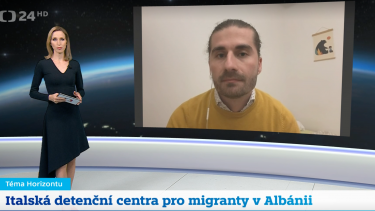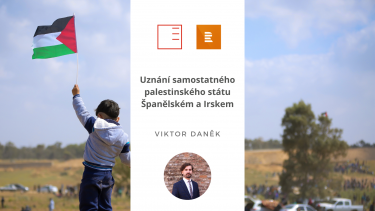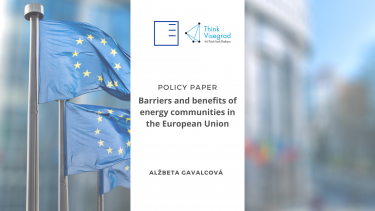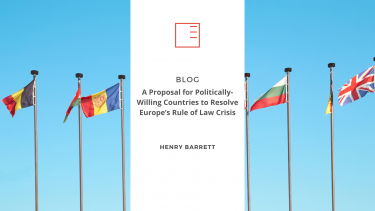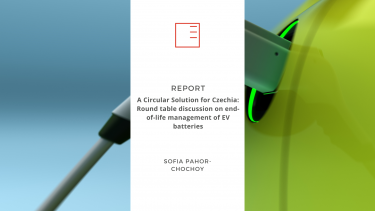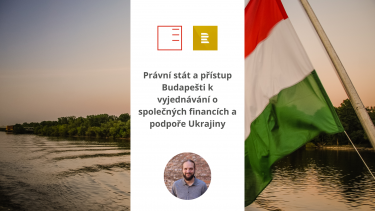Horizont ČT24 | Immigration centre in Albania
A large-scale immigration centre is to be operational in Albania from August. Rome is building it to take illegal migrants intercepted at sea out of its territory until the asylum process is completed. Critics say the plan is unfair to migrants because it will disproportionately prolong their stay in the European Union when they are assessed. Is this an effective solution or is it just part of Italian Prime Minister Giorgia Meloni's election campaign? Viktor Daněk, deputy director of EUROPEUM Institute, commented for Horizont ČT24.
Show moreČRo Plus | Spanish and Irish recognition of an independent Palestinian state
Spain and Ireland are working closely together on a joint move towards the recognition of an independent Palestinian state. Recognition is expected to take place on 21 May. They see this move as an expression of support for a two-state solution to the conflict between Israelis and Palestinians. Viktor Daněk, Deputy Director of EUROPEUM Institute, commented on this issue for Czech Radio.
Show morePolicy Paper | Barriers and benefits of energy communities in the European Union
Energy communities are an effective means to decentralize and renew our energy systems with sustainable solutions as they are usually based on renewable energy. They have already started emerging in 1970´s, yet there has been a significant increase in their development only in recent years, also in terms of their introduction into the EU legislation. Especially in Western and Northern European countries the concept already enjoys vast popularity. On the other hand, in Central and Eastern European countries (further referred to as CEE) energy communities are only beginning to emerge. The policy brief (based on literature and interviews with various stakeholders ) examines the benefits energy communities may bring, and more importantly, the main obstacles remaining in their way for greater evolution in the CEE region – and especially Visegrad countries (V4). As these initiatives progress, sharing the best practices will ensure the success of the community energy in the energy transition. Writes Alžbeta Gavalcová.
Show moreBLOG | A Proposal for Politically-Willing Countries to Resolve Europe’s Rule of Law Crisis
Given the lack of adequate EU responses over rule of law violations, politically-willing European states ought to consider a novel accountability mechanism. It is high time for committed European states to take innovative and decisive action on more than a decade of democratic backsliding sweeping the region and the world. Should European Union Member States concerned about rule of law violations seek a solution outside the EU institutions? Our researcher Henry Barrett, a Fulbright-Schuman Grantee, writes about this topic in his blog.
Show moreReport | A Circular Solution for Czechia: Round table discussion on end-of-life management of EV batteries
On April 11, 2024, EUROPEUM Institute for European Policy along with its partner INCIEN Institute for Circular Economy, held a roundtable titled A Circular Solution for Czechia. This round table was part of a project called The End-of-Life Management of the Automotive Industry and the Opportunities for Czechia.
Show moreHospodářské noviny | Do critics of the migration pact have a better solution?
Viktor Daněk, deputy director of EUROPEUM Institute, commented on the current government's and opposition leader Andrej Babiš's stance on the migration pact for the newsletter Ředitelé Evropy of Hospodářské noviny.
Show moreRTVS | Conclusions of the conference of EU and NATO leaders in Paris
Paris meeting of EU and NATO leaders wrapped up with a clear call - to strengthen the defense capabilities and increase the supply of ammunition to Ukraine. The executive director of the EUROPEUM Institute, Martin Vokálek, spoke more about the reasons and consequences of this extremely quickly summoned meeting for Slovakian RTVS channel.
Show more
RTVS | The European Parliament strongly condemned Hungary
On Thursday, the European Parliament condemned the Hungarian government's deliberate, continuous and systematic efforts to undermine the fundamental values of the European Union. The resolution, which was supported by 345 MEPs, expresses deep concern at the further erosion of democracy, the rule of law and fundamental rights in Hungary. What are the main reasons why the European Parliament has expressed its so far strongest reservations against Hungary? Žiga Faktor, director of our Brussels office and deputy director, commented on RTVS.
Show more
TN Nova | MEPs agree that Orbán's government is against the fundamental values of the EU
According to the resolution adopted by MEPs, Hungary should not receive any more EU money until it proves that it has corrected its shortcomings regarding the rule of law and human rights. They also agreed that Viktor Orbán's government is a threat to the values of the European Union. Žiga Faktor, head of the Brussels office of the EUROPEUM Institute for European Policy, discussed the issue.
Show more
ČRo Plus | Rule of Law and Budapest's approach to negotiations on joint funding and support for Ukraine
Listen to an interview with Vít Havelka, Senior Research Fellow at EUROPEUM Institute, in which he comments on the European Parliament's harshest resolution yet against Hungary, specifically its legal status and Budapest's approach to negotiations on joint funding and support for Ukraine.
Show more
Staroměstské náměstí 4/1
Prague 1 - Staré Město
110 00
tel.: +420 212 246 552
email: europeum@europeum.org
https://www.europeum.org
